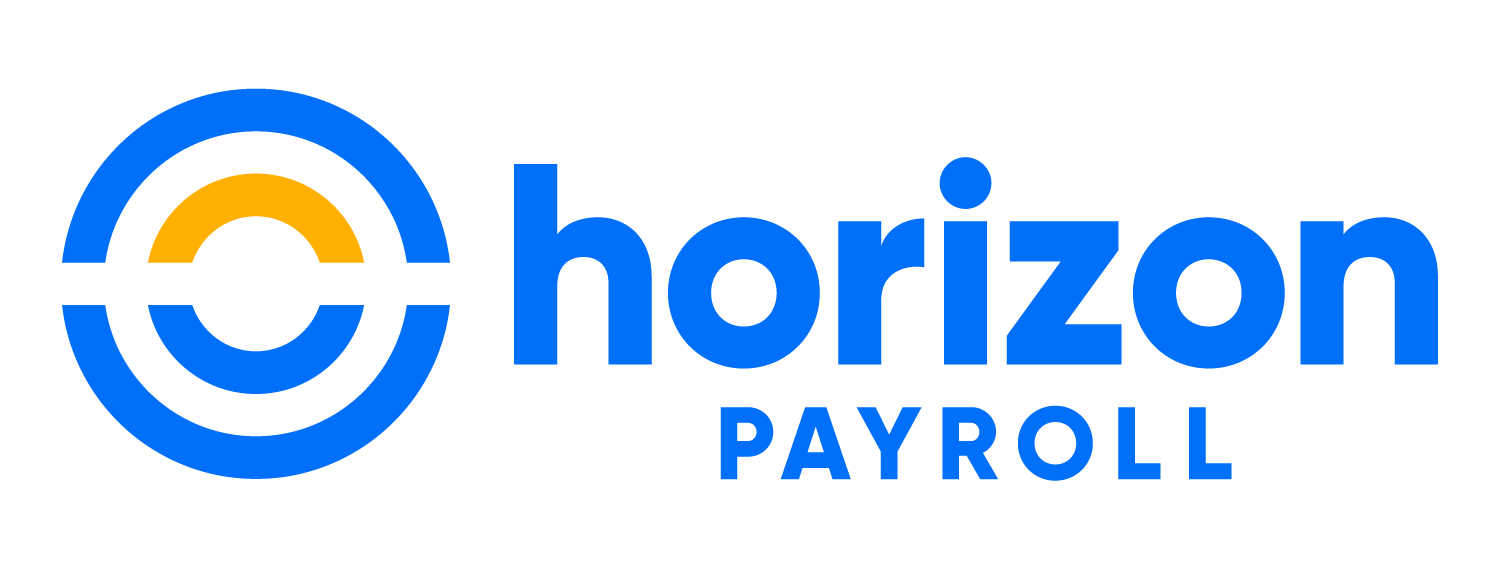8 min read
Horizon Stands Out in a World of Payroll Giants Like Paycor/Paychex
When it comes to payroll management, businesses are often faced with a tough decision: go with a big-name billion-dollar company like Paycor/Paychex...
Expert payroll management services with a personal touch.
View Solution Read Guide HR Support
HR SupportSimplify and personalize HR with a team of HR experts on-demand.
View Solution Read Guide Time & Attendance
Time & AttendanceWhy spend more unnecessary time and money managing your workforce?
View Solution Read Guide Hiring & Onboarding
Hiring & OnboardingTurn your candidates into employees with hiring & onboarding solutions.
View Solution Read GuideAdd On Solutions automate everyday tasks, prevent mistakes, and simplify business compliance.
View SolutionHelpful downloads and eBooks to empower your business.
Helpful tax and HR alerts to help keep your business compliant.
Payroll and tax-related forms and documents.
Log in to your employer (admin) and employee portals.
Horizon's blog provides valuable insight into payroll, compliance, human resources, and more.
See our client success stories for a case study on how we can help your business.
Payroll and HR strategy requires intelligent technology, personal attention and specialized expertise in the needs and nuances of your business.
We provide payroll and tax processing services for businesses from 1 to 1,000 employees or more. Today, we have nearly 1,000 customers in 40 states.
4 min read
![]() Horizon Payroll Solutions
:
April 30, 2025 at 11:06 AM
Horizon Payroll Solutions
:
April 30, 2025 at 11:06 AM
Payroll might seem straightforward, but anyone who's handled it knows the reality: it’s a minefield. One misstep can cost you time, money, and even employee trust. Worse yet, small errors can snowball into compliance headaches that draw the attention of the IRS or Department of Labor. Let’s break down some of the most common payroll mistakes and, more importantly, how you can avoid them.
Employee or independent contractor? It sounds simple, but misclassifying workers is one of the top payroll mistakes businesses make.
When someone is incorrectly labeled as a contractor instead of an employee, the business may temporarily dodge withholding taxes. But, the IRS won’t be fooled for long. If discovered, you could be responsible for back taxes, interest, and penalties.
How to Avoid It:
Use the IRS’s guidelines (especially their "Common Law Rules" based on behavior, financial control, and relationship type) to determine classification. If you’re unsure, it’s better to consult with a payroll professional or employment attorney. Document why you classify someone a certain way so you can back up your decision if needed.
Nobody likes messing with math. But mistakes in calculating hourly rates, overtime pay, bonuses, and commissions can create serious trust issues with your employees. These issues can also leave you exposed to wage and hour lawsuits.
Under the Fair Labor Standards Act (FLSA), overtime must be paid at time-and-a-half for hours worked over 40 in a workweek. Even salaried employees might be eligible if they don't meet certain exempt employee rules.
How to Avoid It:
Invest in a reliable payroll system that automatically calculates regular and overtime pay correctly. Stay updated on federal, state, and local wage laws. When in doubt, treat employees as non-exempt until you verify they qualify as exempt.
Sloppy timekeeping is like building a house on a shaky foundation. If you don't track employee hours correctly, everything that follows (paychecks, overtime, benefits eligibility) can be inaccurate and those mistakes can quickly compound.
Paper timesheets, missed punches, rounding errors, and forgetting to log breaks can all distort actual work hours, creating risks for underpayment claims.
How to Avoid It:
Switch to digital time tracking systems that integrate directly with your payroll platform, such as Workforce Hub, powered by Swipeclock. Make it easy for employees to clock in and out—and just as easy for managers to approve timecards promptly. Regularly audit your time records to catch inconsistencies early.

There's a saying: "If you don't take care of your employees, someone else will." Few things damage morale faster than late paychecks. Plus, missing tax deposit deadlines can lead to costly fines from the IRS and your state revenue agencies. Every missed deadline chips away at your business's credibility, and can make it harder to retain your employees.
How to Avoid It:
Set up automated reminders for pay dates and tax due dates. Better yet, partner with a trusted payroll provider like Horizon Payroll, who can process payroll and remit taxes on your behalf. Never leave payroll to the last minute!
Even small mistakes, like misspelled names, wrong Social Security numbers, incorrect addresses, or outdated tax withholding forms, can cause major issues during tax season or benefits enrollment. Incorrect employee data can trigger rejected tax filings, delayed W-2 delivery, benefits enrollment errors, and identity verification problems.
How to Avoid It:
Double-check all new hire paperwork before entering it into your system. Require employees to review and update their personal information on an annual basis. Make it easy for them to submit changes through a secure self-service HR portal.
The list of possible deductions from employee paychecks seems endless. Mistakes in calculating or withholding the right amounts can cause workers to lose coverage, miss retirement contributions, or even overpay taxes.
For example, if you incorrectly deduct health insurance premiums post-tax instead of pre-tax, your employees and your business both lose out on tax savings.
How to Avoid It:
Coordinate closely with your benefits provider(s) and payroll provider to ensure deduction amounts are accurate. Any time an employee’s coverage changes (like during open enrollment or after a life event), ask them to review and adjust their deductions promptly.
Pro tip: Regular audits of benefits deductions throughout the year help catch problems early.
Payroll records aren’t just for your own reference, they’re required by law. Federal law mandates you keep certain records (like timesheets, pay rates, payroll tax filings, and benefit plan information) for specific periods, often three to four years depending on the document.
If you’re ever audited, you’ll need quick access to complete, accurate records. Missing information could cost you big in fines and added headaches.
How to Avoid It:
Set up a secure system (digital is best) for maintaining payroll records. Label records by type and year, and create regular backup copies. Know the minimum record retention requirements for your business based on federal and state regulations.
In an age where technology can automate and secure nearly every aspect of payroll, some businesses still rely on manual excel spreadsheets, handwritten timesheets, and physical filing cabinets. The problem? Manual processes are riddled with risks:
How to Avoid It:
Move to cloud-based payroll systems that offer secure storage, automatic calculations, real-time reporting, and audit logs. Many modern platforms even offer mobile apps, making it easier for employees to manage their own information and access pay stubs on the go.
If you’re worried about switching systems, Horizon Payroll makes the transition painless, offering hands-on support every step of the way.

No business owner sets out to make payroll mistakes. But between business operations, customer service, and compliance, it’s easy for errors to slip through the cracks. The good news? You don't have to manage it all alone.
Partnering with a trusted payroll provider like Horizon Payroll helps you:
Ready to put payroll headaches behind you?
This content does not constitute legal advice and does not address federal, state or local law.

8 min read
When it comes to payroll management, businesses are often faced with a tough decision: go with a big-name billion-dollar company like Paycor/Paychex...

7 min read
On July 4, 2025, the One Big Beautiful Bill Act (OBBBA), commonly known as the Big Beautiful Bill, was signed into law by President Trump. It is a...

6 min read
AI adoption in business isn’t just a trend—it’s a necessity. Companies that leverage AI tools gain a competitive edge by improving efficiency and...